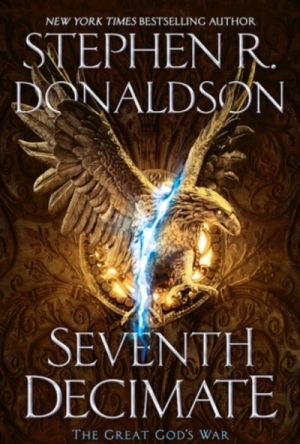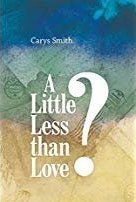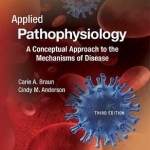
Applied Pathophysiology: A Conceptual Approach to the Mechanisms of Disease
Carie A. Braun and Cindy M. Anderson
Book
Emphasizing application of knowledge, active learning strategies, critical thinking, and...

Green Building Illustrated
Francis D. K. Ching and Ian Shapiro
Book
Green Building Illustrated is a must-read for students and professionals in the building industry....
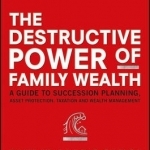
The Destructive Power of Family Wealth: A Guide to Succession Planning, Asset Protection, Taxation and Wealth Management
Book
Wealth owners are responsible for more than just assets The Destructive Power of Family Wealth...
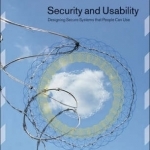
Security and Usability
Lorrie Faith Cranor and Simson Garfinkel
Book
Human factors and usability issues have traditionally played a limited role in security research and...
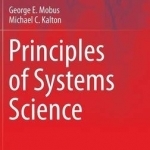
Principles of Systems Science
George E. Mobus and Michael C. Kalton
Book
This pioneering text provides a comprehensive introduction to systems structure, function, and...
Composing the World: Harmony in the Medieval Platonic Cosmos
Book
We can hear the universe! This was the triumphant proclamation at a February 2016 press conference...

Filamente Lite for Office 365 and SharePoint
Business and Productivity
App
Simple, intuitive way to interact with Microsoft SharePoint from your iPad or iPhone. Have full...
Ross (3284 KP) rated The Seventh Decimate : The Great Gods War Book One in Books
Jan 22, 2018
I haven't previously read any of Donaldson's work, though my Dad's unwieldy omnibus edition of the First Chronicles of Thomas Covenant the Unbeliever has been in my pile for some time now.
The storyline follows Prince Bifalt journeying to find the sorcery that can undo his country's current plight (they appear to have lost all magical abilities, key to staying in their generations old battle with neighbours). It starts off in the moments before battle, with the prince teaching his comrades about the history of the battle in a very hard to believe section of "here's the backstory but isn't it good that I wove it into the dialogue". We are introduced to his brothers at arms and each of their quirks and peccadillos, which turns out to be a waste as they pretty much all die within the next 100 pages, whether they like horses or are womanisers or not.
The opening action is very gripping and filled me with hope for the book to follow, as Bifalt and his companions lead a special mission to assassinate the enemy's sorcerers with their previously unreleased rifles.
Thereafter the action pretty much dries up. What follows on Bifalt's quest is a nonsense 200 pages of journey through the back country with a thoroughly detestable character who suspects everyone except those who actually have a reason to be his enemy.
After days in the desert, he meets a nonsensical caravan of misfits that he manages to ostracise himself from by being himself.
What follows is a tedious nonsense of journey, discussion, treachery, intrigue and just general nonsense.
Donaldson has an annoying habit of occasionally following a line of dialogue with "What he meant was" to show what the prince is actually trying to ask but didn't. This gets very annoying very quickly.
The conclusion of the story can only be described as relief that it is over, no great revelations, no climactic sequence or discovery, just "that's that sorted then now send to publishers".
Having recently read a number of fantasy books told from numerous viewpoints and covering really epic storylines, to come to such a linear, one dimensional tossed away story as this from someone who is supposed to be one of the greats of the genre, it really was an incredible disappointment.
I shan't be reading the second or third books of the trilogy, and Thomas Covenant has just slipped down my pile a bit.
Zuky the BookBum (15 KP) rated Small Great Things in Books
Mar 15, 2018
My overall opinion on this one is that I liked it, but mainly because it was such a good discussion book, not because of the actual story. Now, that may sound controversial, that I didnt enjoy the bulk of a book all about racism, but thats not what I mean. Let me explain
I think this book did an amazing job at opening up the topic of racism to the reader. As a white woman, living in a pretty middle class existence, I know for a fact that I have unfair privileges and I will never fully understand the complexities of racism, as much as I try to educate myself. This novel certainly has opened my eyes to the some of the more subtle aspects of racism that I hadnt even thought about before. While there were the obvious racist themes in this novel, it wasnt those that shocked me the most, it was the parts that you dont often think about when you think of racism. So for that, for opening my eyes and my mind, I applaud Picoult for writing such a difficult and controversial book.
However, I think the teachings of this book could have been done in a more compelling story. At the end of the day, there was nothing inherently wrong with the plot, but I didnt quite connect with it. I found a lot of it unexciting and the twist at the end, that Picoult just has to add into each one of her books, was so blatantly obvious it didnt surprise me at all and kind of made the rest of the book feel a bit cheap?
Picoults writing isnt my favourite, it doesnt suck me in as much as other authors, but its still weaves a pretty interesting story. I think the characters in this book were far stronger than the plot.
My favourite part of this novel was watching Ruth and Kennedys relationship grow. I loved seeing how Kennedy steadily grew to understand Ruths frustrations and her plight to bring race to the forefront of peoples minds.
Overall, I did enjoy this book, mainly because of what it taught me and how its made me see things in a different way. But, its not the most exciting story Ive ever read and Im not big on the writing style.
BookblogbyCari (345 KP) rated A Little Less Than Love in Books
Sep 4, 2018 (Updated Sep 4, 2018)
Warning – this is not a feel-good book! And, to be honest, almost every single character got on my nerves! It’s a book about relationships and has several different themes regarding relationships.
When I read the blurb on the back of the book, I could see that Leece, the female central character, was suffering a dilemma as to whether to purposely rediscover past times that she had willfully forgotten. This is at times a dilemma for myself, which is why I decided to read the book.
Despite the focus being on 2 same-sex relationships encountered by, Lecce, her sexuality is by no means the only reason for the relationship complexities.
The storytelling begins with Lecce discovering a Pandora’s box of letters, handwritten notes, and diaries, that she had completely forgotten about. The first being from an infatuation and love affair with a charismatic older woman, Dian. Although the two were close and were together every week, Dian would never dream of leaving her husband for Lecce.
The second of these 2 relationships begins when the young, and perhaps somewhat troubled, Karin takes a shine to Lecce. What starts as friendship, turns into a dark and seedy secret, and quickly descends to an unhealthy and abusive relationship.
Knitted around these relationships are thoughts from other characters, which is where more complexity comes in. There is much insecurity, jealousy, and selfishness.
The meat of the story is in how the abusive relationship between Lecce and Karin comes to its end (no spoilers!).
In fairness, I have to say the author’s scene setting is above par. I came across this book at a meeting of my local library’s book club. Although we haven’t discussed it yet, I can see there are several points for discussion.
The style of the book is very fragmented – and not just because of the postcards, letters, and diaries entries, but also because it tells the story from several viewpoints and points in time. I often began to feel I had missed huge sections of the story, but it wasn’t I who had missed sections – it was the author! Oftentimes passages weren’t labeled “past” or “present” and I was left to guess where I was in the story.
Throughout the book, I felt compelled to read on. To be honest, the main reason for the relatively poor rating is that the book tended, overall, to bring me down. It’s given me some insight into what life may be like for some (not all) gay women.
For more of my reviews, check out my blog: www. bookblogbycari.com

